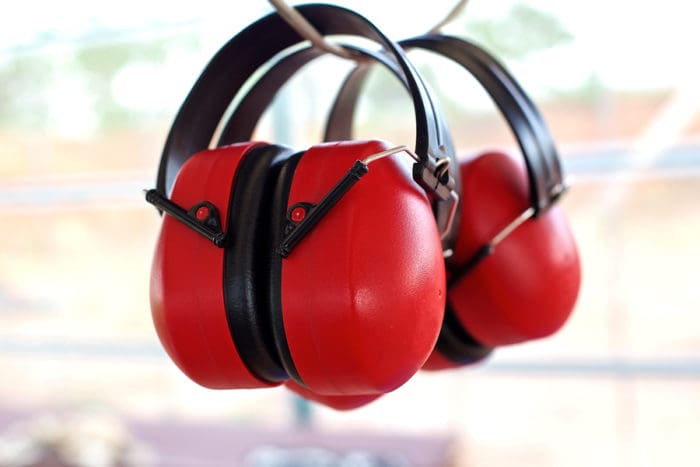It’s o’ dark thirty. You hear someone busting through your kitchen door. Why didn’t the alarm go off? Did I forget to set it? No time to worry about that. You grab your specs and your gun, wake your significant other and implement your home defense plan. As hard as it is to believe, you hear footsteps headed in your direction. It’s the bad guy. With adrenalin coursing through your veins (like a thousand railroad trains) you take aim and pull the trigger. And miss. Maybe. Maybe you hit him. Who knows? Luckily the bad guy turns tail. But now you don’t hear his footsteps . . .
Because you’re deaf. If you shot a handgun, your ears are ringing, painfully, blocking out all ambient sound. If you shot a shotgun, you are stone cold deaf – a condition which may or may not repair itself in time, and then perhaps only partially. Never mind. You stopped a lethal threat. You survived. Your hearing is a small price to pay. Only . . .
Another bad guy comes up behind you and clocks you with a baseball bat. Or shoves a knife in your back. Or shoots you. As you fall to the floor, your first thought is for your family. The cops will be here soon. Soon enough? God I hope so. Your second thought: get up and fight! Only you can’t. And somewhere in the back of your mind another idea emerges: if only I’d heard him coming.
Your sense of hearing is a key component of armed self-defense. It provides you with mission critical information about the location, number, speed, size and direction of friendlies and potential threats. If you severely diminish or lose your sense of hearing – as you surely will if you discharge a firearm inside your house – you lose an enormous amount of situational awareness. So why do it?
Keep a pair or electronic earmuffs by your self-defense gun. If the S hits the F, put ’em on before you do anything else. Not only will they protect your hearing in the advent of a defensive gun use (DGU), enabling the continued use of your hearing as the event unfolds, but they amplify ambient noise. In effect, they give you super hearing – increasing your strategic capabilities.
The argument against donning electronic muffs during armed home defense: the more you have to do in a DGU, the more chance that you’ll fail to do it properly. You do not want the bad guy to find you futzing with ear pro. Although small, the extra time needed to ear-up could put you behind the self-defense curve.
That’s your cost – benefit calculation to make – after practicing donning e-muffs. In your bedroom. In the middle of the night.
It’s not as easy as it sounds: the combination of adrenalin and grogginess plays merry hell with manual dexterity. You need to position the cans by your bedside in a particular fashion – so that the on-off switch is in the same place every time you slip the headband over your noggin. And yes, you can talk to 911 with electronic earmuffs on.
I reckon e-ear pro is worth the risk. Protecting your hearing in the heat of battle could save your life. And I know this sounds odd, but I wouldn’t consider a DGU a win if I repelled the bad guys and lost [more of] my hearing. Alternatively, if you can, buy a can. Mind you suppressors are still damn loud; one left me with tinnitus. So . . . why not both electronic ear pro and a suppressor?
